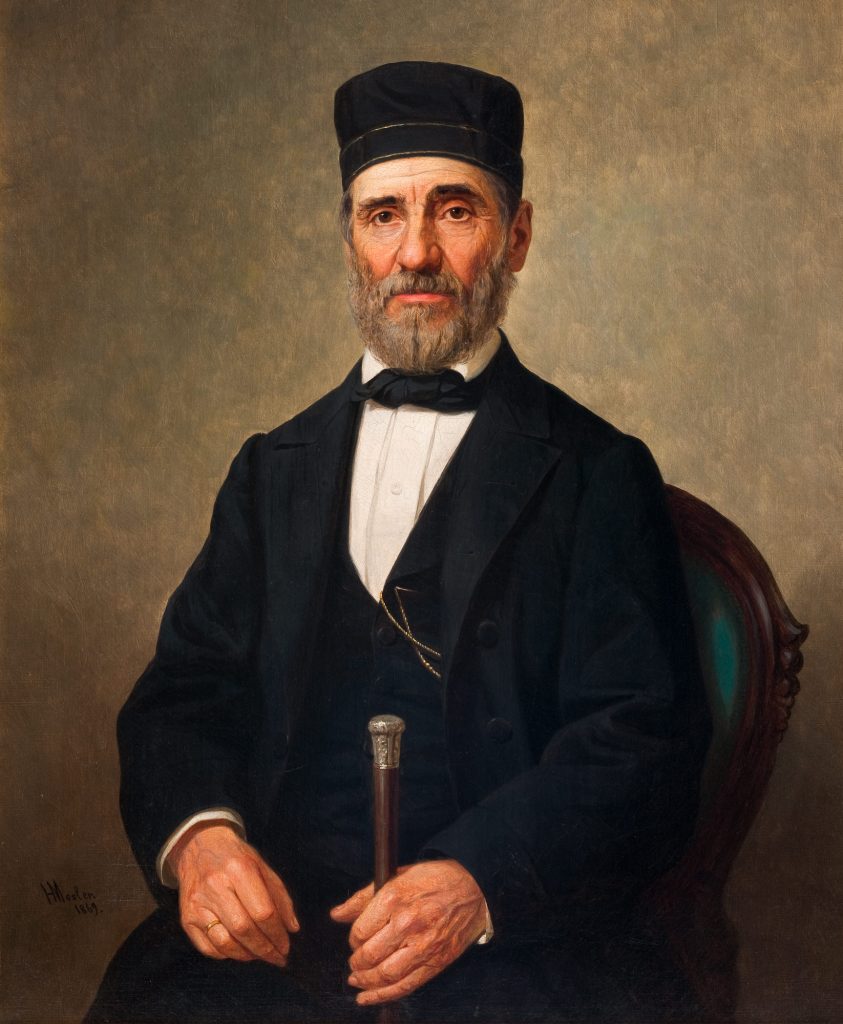A rabbi and leader of Orthodox Judaism in the United States, BernardIllowy was descended from a prestigious central European rabbiniclineage. His great-grandfather, Phineas Illowy of Ungarisch-Brod inthe province of Moravia in the Austrian Empire, served as haus-rebbe,or private chaplain, to the banker Emmanuel Oppenheim. Hisgrandfather, Jacob Illowy, was appointed rabbi of Kolín, a townlocated to the east of Prague, on the Elbe River, then the secondlargest congregation in the kingdom of Bohemia. There Bernard’sfather, Jacob Judah, also trained as a rabbi, though he pursued acareer in trade. He married Rachel Schefteles, and they raised theireleven children in Kolín.
Bernard Illowy received his rabbinic ordination from the school ofMoses Sofer in Pressburg, went on to attain a doctorate at theUniversity of Budapest, and pusued further studies at the rabbinicalcollege in Padua, Italy. He tutored the son of a high official inZnaim, Moravia, and served for a time as a professor of French andGerman at the Gynasium there. In 1845, he married Katherine Schiff,daughter of Wolff Schiff, a merchant from Raudnitz, Bohemia, and thecouple would have four children.
Because theauthorities became aware Illowy’s sympathies for failed revolutionof 1848, he found it impossible to obtain a rabbinic posting anywherein the German lands. He was selected to serve as chief rabbi of thePrincipality of Hessen, but the minister of the interior refused toapprove his appointment. As a result, Bernard and Katherineimmigrated to the United States, where, following brief stints atcongregations in New York City, Philadelphia, Saint Louis, Syracuse,and Baltimore, he was appointed the rabbi of Shangarai Chasset in NewOrleans, a position he held from 1861-65.
Illowywas known for his vocal opposition to Reform Judaism and hisinsistence on the importance of strict adherence to traditionalreligious observance. In 1855 he helped organize the ClevelandConference, which was supposed to unify the American rabbinate aroundthe goal of strengthening observance, but when it became clear to himthat the conference would instead become a platform for spreadingReform Judaism, he refused to attend.
Hewas vocal in his support of the Confederacy, asking, during a sermonin 1861, “Who can blame our brethren of the South for secedingfrom a society whose government can not, or will not, protect theproperty rights and privileges of a great portion of the Unionagainst the encroachments of a majority misguided by someinfluential, ambitious aspirants and selfish politicians who, underthe color of religion and the disguise of philanthropy, have thrownthe country into a general state of confusion, and millions into wantand poverty?”
When ShangaraiChasset voted to become Reform, Illowy picked up once again, movingto Cincinnati to serve as rabbi of the new orthodox congregationShearith Israel. He resigned in 1869 because of difficulties with hishealth, but remained in Cincinnati until his death in 1875.
